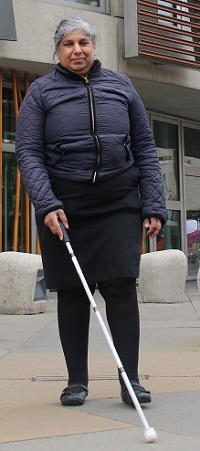Charity News
RNIB discusses Patients with risk of losing sight
RNIB Scottish Meeting
A gathering of over 140 eye-health professionals met in Edinburgh, Wednesday, March 8th to discuss how to improve the treatment and care of patients at risk of losing their sight.
 Around 183,000 people are currently living in Scotland with a significant degree of sight loss, and over two million across the UK. But an ageing population, and rocketing rates of sight-threatening health conditions like diabetes, means this could double. Already, ten people a day begin to lose their sight.
Around 183,000 people are currently living in Scotland with a significant degree of sight loss, and over two million across the UK. But an ageing population, and rocketing rates of sight-threatening health conditions like diabetes, means this could double. Already, ten people a day begin to lose their sight.
The conference in the city’s Dynamic Earth venue has been organised by leading sight loss charities RNIB Scotland and Sight Scotland.
RNIB Scotland director James Adams said: “Caught in time, some sight loss conditions can be arrested or even reversed. So it is essential that our eyecare services can identify potential problems as soon as possible to offer treatment. Where sight can’t be saved, people need reassurance and assistance to go on to live as fully and independently as possible.
“Demographically, we know by 2033 there will be a 50 per cent rise in the proportion of the population aged over 60, an age when the incidence of sight loss increases rapidly. So we do need a clear pathway of support to be in place.”
Craig Spalding, chief executive of Sight Scotland and Sight Scotland Veterans, said: “We’re delighted to team up with RNIB Scotland and others, to host the annual Scottish Vision Strategy Conference. This brings together key partners to discuss the main challenges and successes in eye health care across Scotland. Our fundamental aim is to help more people with sight loss in Scotland. Community support, which provides both practical and emotional support to people living with sight loss and their families, is fundamental in achieving this.
“Our Community Services team supports people to learn or re-gain essential living skills following a diagnosis of sight loss. We want to ensure everyone who needs our help can keep doing the everyday things that are important to them, while also developing essential skills to live safely at home, and to navigate the world with confidence.
“Events like this are just so important in highlighting the needs of those with a visual impairment and the vital steps we all need to take as we try and drive the See Hear strategy forward.”
Other speakers at today’s conference will include Dr Paul Johnstone, chair of Eyehealth Scotland; Laura Walker, chief executive of visibility Scotland; and Dr Mhairi Thurston from Abertay University.



















